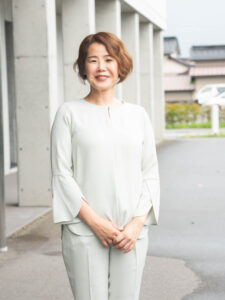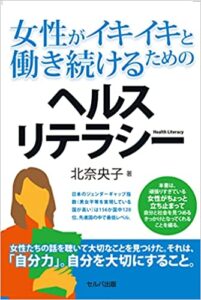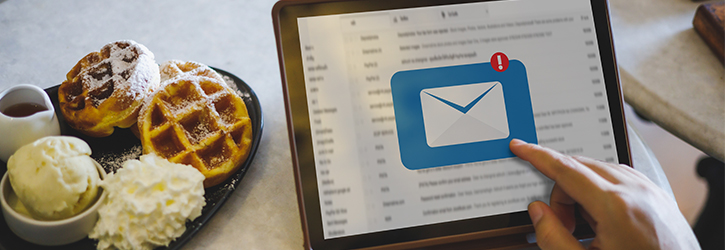Joconne is Japan based company to create a society where women can live with a high level of health literacy through three core initiatives:
- Support for Gender-Specific Health Issues in the Workplace
- Women’s Health Medical Device Business
- Women’s Empowerment Initiatives
Achieving health literacy requires more than just individual awareness—it also requires an environment where people can access the right information and services when needed. Joconne takes a dual approach, targeting both individuals and their surrounding environments, to realize a society where women can live with high health literacy.
According to the McKinsey Health Institute, addressing the health burden faced by women could generate an economic impact of USD 1 trillion. Meanwhile, Japan’s Ministry of Economy, Trade and Industry estimates that the economic loss caused by women-specific health issues amounts to ¥3.4 trillion annually (as of 2024).
As awareness grows regarding gender-specific health challenges and sex-based differences, society is beginning to recognize the importance of enabling not only women—but all people including men—to lead healthier lives. This is now becoming a social imperative.
At Joconne, we aim to increase access to information and expand choices for women so they can maintain their health and fully participate in society. Ultimately, we envision a world where everyone can thrive while valuing their well-being.
・In our Workplace Health Support initiative, we provide information on women’s health to not only working women, but also to men and managerial staff.
・In our Women’s Empowerment initiative, we deliver information directly to women, support their active participation in society, and ensure access to necessary services.
Please feel free to contact with us for any requests and questions
About Joconne
The name “Joconne” comes from the idea of “connecting women” (in Japanese, “jo” means woman, and “conne” from “connect”).
I was once just like that. Until my mid-30s, I worked hard in a male-dominated foreign company. I was an ordinary woman with little knowledge about my own health. I had never been to a gynecologist and held a negative image of birth control pills. It wasn’t until my 30s that I realized my occasional headaches were tied to my menstrual cycle. I started taking Bufferin to get through them. When business trips coincided with my period, I’d pack pads, tampons, and painkillers in my suitcase and keep going like everything was fine.
One day, the pain and nausea became so severe I couldn’t go to work. Realizing it was that time of the month, I finally went to a nearby women’s clinic. The diagnosis: endometriosis. My ovary, which should have been the size of a thumb, had grown to 8 centimeters. The doctor told me I’d need to be referred to a hospital for surgery, especially if I wanted to have children. I chose to have the surgery in my mid-30s.
Shortly after, I encountered the term health literacy, and decided to pursue graduate studies focusing specifically on women’s health literacy. Through my studies, I came to understand that topics like menstruation, menopause, and sexual health should not be taboo—they’re normal aspects of life. I also discovered that there are experts who can help, and many conditions can be treated or improved. Yet many ordinary women like myself are not informed, and are even conditioned to keep these things to themselves.
If menstrual pain had been talked about like skincare, I probably would’ve casually asked friends or looked up solutions online.
Another thing I learned while researching health literacy is this: how we think about our lives is deeply connected to how we treat our health.
I grew up as a “good girl”—I studied hard, got into a prestigious university, landed a stable job at a well-known company. I was supposed to get married in my mid-20s and have children soon after. But in reality, I gave birth at 38. That’s when I started to veer off the traditional path, and frankly, I’ve been off it ever since! (laughs)
I realized that my life had been heavily shaped by what society deems “right,” rather than what I truly wanted. That’s why I always felt a sense of discomfort. Even if someone else says “this is great,” it means nothing if I don’t feel happy myself. Living on my own terms—with a sense of autonomy—also affects how I care for my body and mind.
I want women to truly understand and embrace their bodies, to better navigate menstrual pain, menopause, and other challenges. I want them to shine, living by their own values, and I want that for myself, too. That’s why I started Jokone., and continue to develop services that support this mission.
Profile
Naoko Kita (CEO, Founder)
 Board Member, NPO Women’s Cllinic Network (https://cnet.gr.jp/)、Master of Engineering, Waseda University (Faculty of Science and Engineering)
Board Member, NPO Women’s Cllinic Network (https://cnet.gr.jp/)、Master of Engineering, Waseda University (Faculty of Science and Engineering)
Naoko began her career in medical devices after researching artificial bone during her university and graduate studies. She went on to work in marketing for global medical device companies, helping launch new products and treatments. With a passion for bridging the gap between healthcare professionals and the general public, and driven by keywords like “health,” “women,” and “living authentically,” she began researching women’s health literacy in April 2016.
Through this work, she discovered how difficult it is for many women to speak up or act on their health concerns. To solve this problem, she founded Jokone., a company that delivers services entirely from a woman’s perspective.
In the summer of 2018, she gave birth to her first child and is now juggling both entrepreneurship and parenting. She is a certified menopause counselor, women’s health advisor, health promotion advocate, and holds a Master of Engineering degree.
In March 2022, she published a book titled:
“Health Literacy for Women to Thrive in the Workplace”

SNS
FB
https://www.facebook.com/naoko.kita.754
twitter
https://twitter.com/Norte705
LinkedIn
https://www.linkedin.com/in/naoko-kita-3b53557a/
Awards/ Grants:
2025, Healthcare Solutions Expert of the Year – Health & Wellness, Fluxx Awards 2025
2024, Selected to J-starX Healthtech accerelator by The Japanese Ministry of Economy, Trade and Industry
2024, Femtech Support Subsidiary grant from The Japanese Ministry of Economy, Trade and Industry
2024, WOMAN’s VALUE AWARD Femtech 2024
2024, Most inspiring women entrepreneurs from Japan
2023, Selected to J-starX Healthtech accerelator by The Japanese Ministry of Economy, Trade and Industry
2022, Outstanding Leadership Award, Health 2.0
2022, Medtech GrandPrix Kobe, Eisai award
2022, Awaji Start Up Queen Award finalist
2021, Femtech Support Subsidiary grant from The Japanese Ministry of Economy, Trade and Industry 2021, Selected to Aichi 500
2021, Selected to Apt women 6th cohort by TOKYO METROPOLITAN GOVERNMENT
2017, Society Encouragement Award by the society of menopause and aging health care
2014, President Recognition Award, Medtronic
2013, Long Term Incentive Award for successful establishment for Advisory Board meeting, Medtronic
2011, Core Behavior Award for logistic improvement of tissue valve, Bronze award of the year, Medtronic
2010, Core Behavior Award for new training program with cardiologist, Medtronic
2009, Marketing of the year in cardiac surgery business, Medtronic




